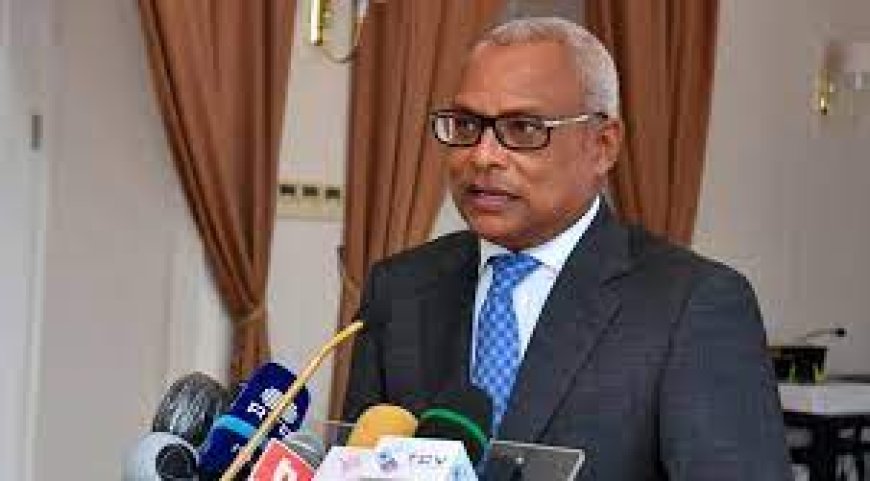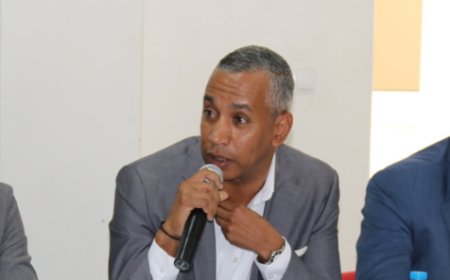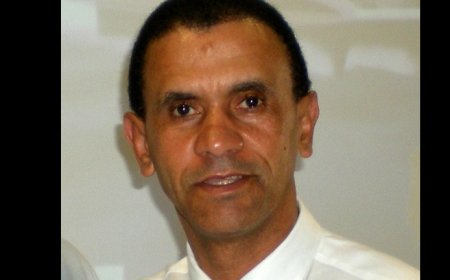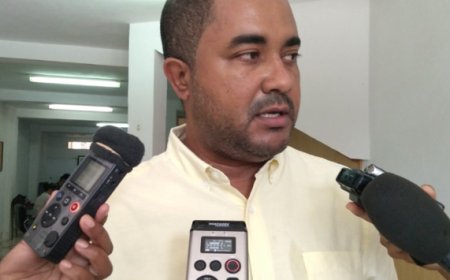PR enacts OE 2023 calling for dialogue and consensus to face the crisis situation
The President of the Republic promulgated, today, December 28, the diploma of the National Assembly that approves the State Budget for 2023 (OE2023). In the letter sent to the President of the National Assembly, which accompanies the promulgation, the PR leaves, however, some reflections on the same, among which the need for “dialogue, understandings and consensus” between the main political, economic and social actors, in this “an environment of high uncertainty” and “a changing economic framework with unpredictable contours”, given the multiple crises that the country and the world have been facing.

The President of the Republic promulgated, today, December 28, the diploma of the National Assembly that approves the State Budget for 2023 (OE2023). In the letter sent to the President of the National Assembly, which accompanies the promulgation, the PR leaves, however, some reflections on the same, among which the need for “dialogue, understandings and consensus” between the main political, economic and social actors, in this “an environment of high uncertainty” and “a changing economic framework with unpredictable contours”, given the multiple crises that the country and the world have been facing.
Likewise, José Maria Neves calls for greater attention to the population, especially the most disadvantaged classes, in terms of measures to mitigate the effects of this “polycrisis” on people’s quality of life, in particular with regard to rising prices of goods and food products.
“I would also like to mention that, with them in mind, but moved by the highest concern for the national interest and, also along these lines, to allow the parliamentary majority to carry out its options, within a framework of institutional normality and stability, I decided to enact the Law that approves the State Budget for the year 2023”, justifies the PR in the letter in question.
Attached is the letter from the Head of State to the President of the Assembly, which accompanies the enactment of the OE 2023.
Praia, December 28, 2022
Mr President of the National Assembly,
I would like, on this occasion, to convey the following to you regarding the Law approving the State Budget for the year 2023:
- Having in hand the State Budget for 2023 (OE2023), for promulgation, I received, in separate hearings, the political parties with parliamentary seats and the social partners, with the aim of hearing their reading of it and their concerns about the situation country's socio-economic situation, as well as to bring together the plurality of opinions and existing proposals, namely in the political, economic, business and trade union communities. In fact, I believe that the enormous challenges that the world and the country are facing require dialogue, understanding and consensus among the main actors and a clear and coherent sense of more radical changes in the formulation and implementation of public policies.
- Prepared and debated in an environment of high uncertainty, the State Budget for 2023 (OE2023) is based on a changing economic framework with unpredictable contours.
…/…
Your Excellency
Dr Austelino Tavares Correia
President of the National Assembly
Beach
There is a polycrisis. Times are difficult, unprecedented, complex and uncertain. Climate change, and, in the case of Cape Verde, the successive years of severe drought, the socio-economic and health devastation caused by the pandemic and conflicts, particularly the war in Ukraine, have had disastrous consequences, namely the slowdown in the pace of economic growth and rising inflation, unemployment, poverty and inequalities.
In this context, I believe that there may be relative optimism in the macroeconomic scenario presented by the Government, which may be justified taking into account the evolution of the economy in 2022 and which determined a budget execution clearly beyond the most optimistic expectations, especially in terms of refers to GDP growth.
However, the risks of the projected macroeconomic scenario not materializing are high and show a tendency to increase even more, considering the most recent evolution of the international situation and its impacts on the energy and agricultural commodities markets.
Particularly, with regard to prices, it should be taken into account that the Cape Verdean economy is permeable to external inflation, mainly from its main economic partners. In a context of energy crisis in Europe and disruption in the supply of goods, in particular food products, the slowdown in the inflation rate, pointed out by the Government, from around 8% in 2022 to 3.7% in 2023 is, therefore, subject to a strong risk of an upward nature.
As it is situated in a context of unpredictable evolution, the OE2023 must be flexible to allow for various scenarios for readjusting its application, precisely because there are countless unknowns in relation to the future.
In addition, the OE2023 maintains practically the same matrix as that of the State Budget in force, not resulting in any substantial changes in fiscal policy, indebtedness policy, in income and price policy, as well as any notable effort to contain and rationalization of expenses.
…/…
However, it has some positive aspects, namely: (i) the increase in the national minimum wage from 13,000 to 14,000 escudos; (ii) the attribution of the social pension to over 3,000 elderly people; and (iii) the significant increase in investment in essential services and public infrastructure, which could boost economic dynamics.
But, in general, the OE2023 is timid in measures to counteract the economic and social effects of the current economic situation, and the Government must adopt a flexible and dynamic stance in budget execution, in order to respond to a possible worsening of the crisis through reinforcement of support for families and companies.
Unfortunately, the scenario of continued impoverishment of Cape Verdean workers and pensioners due to the loss of purchasing power in wages and pensions is plausible. This situation results, on the one hand, from the accumulation of forecast inflation for the years 2022 (7.9%) and 2023 (3.7%), in the order of almost 12%, and, on the other hand, from the fact that the wages and pensions have not been updated in 2022 and will only be partially updated in 2023 and, even then, not for everyone.
Indeed, the SB2023 provides for an increase in public administration salaries and pensions of between 690 and 1,155 escudos and only for those who receive these benefits up to a value of 69,000 escudos. It should be noted that this partial increase in salaries, in the way it was done, without the necessary adjustments in terms of positions and levels, could cause serious dysfunctions and injustices in the salary plan of public functions.
Even more important than that, more comprehensive and significant compensatory income transfer measures would be expected for families most impacted by the brutal increase in the cost of living, which also did not occur with the SB2023. At stake, on the one hand, are around 73,000 people who are estimated to be in extreme poverty, that is, fellow citizens living in households with incomes that allow monthly per capita consumption below 6,000 escudos. And, on the other hand, about 46 thousand people who are believed to be in a situation of acute food crisis, that is, fellow citizens who can go several days without meeting their minimum energy food needs. It's official data. I understand that it is a moral obligation of the State to protect these families in particular, within a framework of guaranteeing the necessary social balance.
…/…
- Likewise, the continuous and worrying increase in public debt, the stock of which (excluding Capital Income Bonds) is expected to reach more than 306.5 billion escudos in 2023 compared to a projected nominal GDP of around 230 thousand million escudos, withdraws, through the respective charges, public resources that could be used, for example, in the enhancement of human resources and in the protection of the most vulnerable.
Indeed, in the SB2023, the amount foreseen for servicing the public debt, in the amount of around 26.2 billion escudos, is equivalent to almost 60% of the tax revenues (taxes and fees) expected to be collected, which means that more than half of the taxes and fees that resident citizens will pay in 2023 will go towards the payment of interest and other charges (5.9 billion escudos) and amortization (20.3 billion escudos) of the debt, a very worrying situation and which should lead everyone to a serious and uncomplicated reflection!
Also worrying is the size of contingent liabilities, that is, guarantees and guarantees granted by the State to third parties (public and private companies, municipalities), whose stock had already reached 24.401 billion escudos in 2021, to which is added the limit of 11 billion escudos established in the 2022 Budget, as well as the limit of 11 billion escudos provided for in the SB2023. Even if, in principle, they should not be recorded as liabilities in macroeconomic statistics, contingent liabilities may still constitute a budgetary risk of some relevance when certain conditions prevail, for example, if the loan guarantee is forfeited, forcing the registration.
In this context, the urgent need to reform the State and Public Administration is unavoidable. We need a State resized and adapted to the dimensions and strategic needs of the country and a Public Administration that is less costly, more flexible, more efficient and more effective, truly capable of giving adequate, timely and effective responses to the multiplicity of demands arising from a contextual environment complex and uncertain. We need to raise the bar of requirements and develop, actually induce, from top to bottom, a culture of quality and rigor in everything we do as servants of the State and achievers of the Common Good.
…/…
At the same time, strong debt and contingent liability management capacity is needed to increase transparency, minimize contingent hazards, mitigate the risks of rapid debt accumulation, and strengthen global macroeconomic stability.
For Cape Verde, it is also important to take advantage of the current crisis as an opportunity to carry out structural reforms in its economy that lead to a movement towards modernization, innovation and increased competitiveness, with multiplier effects that will be felt in the long term. If, as is required, we think about the future of the Nation, the reformist direction is no longer a mere option; it is a pressing need.
In fact, it is urgent not to lose sight of the fact that the reform of the Public Administration, accompanied by the structural reforms that are needed, can, in the long run, lead to a reduction in State operating expenses and further support the fight against poverty and inflation, improving citizens' quality of life and easing supply constraints.
For this purpose, there must, however, be a clear vision and strategies, mobilizing and propitiating a broad consensus, embodied in a regime pact, particularly between the main national political parties.
- From the analysis of the OE2023, there is also the issue of possible organic unconstitutionality of article 6 of the Law that approves the State Budget for 2023, since the norm does not respect number 3 of article 161, which imposes a majority in voting on matters relating to holders of Bodies of Sovereignty, which naturally includes the provisions of paragraph i) of article 176.º, “Elections and status of holders of sovereign bodies and local authorities, as well as other constitutional bodies or bodies elected by direct and universal suffrage” (all of the Constitution of the Republic).
In effect, these combined provisions reserve the legislative competence of the National Assembly, the matter of the status of holders of sovereign bodies, imposing a qualified majority, i. that is, a two-thirds majority of the Deputies present, provided that it exceeds the absolute majority of Deputies in terms of effectiveness of functions, the legislative activity that affects these matters.
Since it is not appropriate here and now to expand on the legal-constitutional basis, in the context of the abstract and successive inspection, provided for in article 280 of the Constitution, the assessment and declaration of unconstitutionality of the aforementioned rule will be required.
These are, Mr. President of the National Assembly, the observations that I thought it best to bring to your attention and, through you, to those of the most worthy members of the national Parliament.
I would also like to mention that, with them in mind, but moved by the highest concern for the national interest and, also along these lines, to allow the parliamentary majority to carry out its options, within a framework of institutional normality and stability, I decided enact the Law approving the State Budget for the year 2023.
With the expression of my highest consideration.
José Maria Pereira Neves
























































